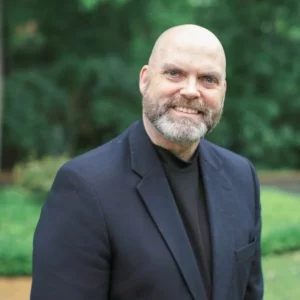Every United Methodist pastor since 1773 has answered nineteen historic questions as a way of agreeing to how we will live into this ministry life. I looked at these questions for the first time since ordination about this time last year and was deeply helped and encouraged by seeing them in light of nearly twenty years of ministry.
Maybe an annual evaluation of ministry in light of the questions I agreed to on day one is a good idea. Here is my take on what these questions mean for service in the Kingdom of God through the United Methodist Church:
1. Have you faith in Christ?
Faith in Christ is to believe who he himself claimed to be: the way, the truth and the life. He claimed to be the singular path to the heart of the Father and did not give us another option.
Methodists are not universalists. No one answering this question in the affirmative has a right to soften its meaning for convenience’ or conscience’ sake. Which is not to say a person doesn’t have a right to believe a universalist theology; they just don’t have a right to believe that and call themselves Methodist.
2. Are you going on to perfection?
Only inasmuch as Jesus has asked it of all of who follow him on the narrow road. This call to Christian perfection is a cry to be something more — more love, more joy, more peace, more Presence, more perfect. Not in the sense of gaining perfection on our own strength, but in the sense that in the fullness of the Holy Spirit we can find abundant life.
C. S. Lewis wrote,
“The command ‘Be ye perfect’ is not idealistic gas. Nor is it a command to do the impossible. [God] is going to make us into creatures that can obey that command. … He meant what he said. Those who put themselves in His hands will become perfect, as He is perfect — perfect in love, wisdom, joy, beauty, and immortality.”
3. Do you expect to be made perfect in love in this life?
Methodists believe entire sanctification is the trajectory of authentic discipleship. The question is not whether we have reached it or even if we can. The question is, are our lives pointed in that direction? Sanctification is costly; it is, simply put, a call to die to self. But this question is also an invitation to freedom — freedom from mediocrity and the tyranny of tolerable. It is an invitation into the good life in its most vivid and faithful form.
4. Are you earnestly striving after it?
The repetition of this theme makes it all the more meaningful for Methodists, whose contribution to the Body of Christ is their commitment to sanctification. When you say you are going on to perfection, is this your intention? Will you be ruthlessly opposed to stagnation in your life with Christ, in your ministry, in your care of the Church?
This commitment to sanctification is ultimately a call to defeat the spirit of fear. “There is no fear in love. But perfect love drives out fear, because fear has to do with punishment. The one who fears is not made perfect in love” (1 John 4:18).
5. Are you resolved to devote yourself wholly to God and his work?
There is no such thing as “part-time” in church work (can I get an “amen”?). The work of Jesus isn’t meant to be carried out with our leftover time or leftover money. Jesus never gave us that option. He calls those who follow earnestly to take up crosses, to die to self.
6. Do you know the General Rules of our Church?
This question is particularly meaningful for this season in the UMC. It is good to be reminded that we follow a Book of Discipline, a set of standards that guide our life together. When we enter into connectional ministry, we stand before our peers and make a commitment to living by those standards. We need to be reminded that we were adults when we answered these questions. Living them out is a holy responsibility. Otherwise, what connects us?
7. Will you keep them?
Connection and accountability is at the heart of the current crisis within the UMC. If, at our ordination, we answer this question in the affirmative, then are we not accountable for that? If not, then everyone is free to have their own opinion and go their own way (and we ought to drop the question from the list). If we are, then whether we agree with every point or not, we are required to live respectfully with one another inside an agreed-upon set of expectations. And when we can’t, we have an obligation to find another tribe that more closely aligns with our values.
8. Have you studied the doctrines of The United Methodist Church?
It has been erroneously said that the UMC is not a “creedal church.” How one could reach that conclusion after reading the Articles of Religion that introduce our Book of Discipline is beyond me. Here is our doctrine, clearly spelled out in twenty-five statements. Combined with our social principles, Wesley’s sermons and notes, and a denominational commitment to both the Apostles’ and Nicene Creeds, we are far more doctrinal than not. Our uniqueness is in our emphasis on social holiness; doctrine without community and compassion is dead.
9. After full examination, do you believe that our doctrines are in harmony with the Holy Scriptures?
A world of people disagree with our Wesleyan theology on issues like predestination, the exclusive nature of Christ, the authority of the scripture, the leadership of women — just to name a few. Within our own tribe, there is quite the controversy over the interpretation of scripture where human sexuality is concerned. This question calls us to transparently examine our own minds and consciences and ask ourselves what we most deeply hold true before we commit to this tribe. Otherwise, we find ourselves too quickly frustrated with every disagreement on lesser things. The product of trying to fit a square peg into a round hole is an anxious spirit. That doesn’t have to be.
10. Will you preach and maintain them?
Wesley called the church not merely to the letter of the law but to the spirit of it. “Though we cannot think alike, may we not love alike? he wrote. “May we not be of one heart, though we are not of one opinion? Without all doubt, we may. Herein all the children of God may unite, notwithstanding these smaller differences.”
11. Have you studied our form of Church discipline and polity?
They don’t call us Methodist for nothin’. Our structure is designed to create community and it has done a remarkable job for 244 years. Bearing the weight of the world’s second largest mainline denomination proves its brilliance. This structure stood our church well from its fiery days of revival in early America to its current global membership of 12.5 million. I am not at all convinced, however, that our historic structure is designed to withstand our current diversity. It may well be that the lack of understanding of this structure has only exacerbated the strain. What we are sure of is that is was not built to withstand the pressure of pluralism.
12. Do you approve our Church government and polity?
Wesley’s practice of repetition in these questions reveals his understanding of human nature. If I didn’t know better, I’d think he dealt often ministers who were weak in the spiritual discipline of letting their yes be yes and their no be no. How much confusion is caused by well-meaning people who have not counted the cost before building the house?
13. Will you support and maintain them?
See above.
14. Will you diligently instruct the children in every place?
This is a commitment to the next generation. In every decision, in every investment of time and resources, is the spiritual care of the next generation being considered? Or merely the comfort of the present one?
15. Will you visit from house to house?
Will you know people personally? Will you do more than use them as volunteers? Will you die to self as you care for the souls of your people, counting them as precious (not just as “present”)? Will you set your phone down and sit and listen? Will you hear their failures through the filter of their stories? If you love Jesus, will you feed his sheep?
16. Will you recommend fasting or abstinence, both by precept and example?
If you at any point in your life solemnly and publicly agreed to these nineteen questions and the principles beneath them, I challenge you to stop here and deeply consider whether or not you have kept faith with question #16. Have you? And if not, why?
Maybe Wesley chose to single out this spiritual discipline because it represents the deep end of a healthy list of practices he firmly believed would draw down the grace of God. Those who know how to fast will find the rest of our recommended works of piety and works of mercy much more do-able.
17. Are you determined to employ all your time in the work of God?
Wesley said, “Unless God has raised you up for this very thing, you will be worn out by the opposition of men and devils. But if God be for you, who can be against you? Are all of them together stronger than God? O be not weary of well doing!”
18. Are you in debt so as to embarrass you in your work?
When these questions are asked of ordinands in the opening pastor’s session of Annual Conference, this one always evokes a wave of titters throughout the audience. I suspect that is because many of us, years into ministry, continue to carry stressful debt in the form of student loans. We feel the tension between our tithes and our desires for comfort. We are all too aware that financial stress depletes us and keeps us from wholeheartedly going where Jesus sends. Those who fit that description would do well to heed Dave Ramsey’s challenge to go after a debt-free life with gazelle-like intensity. Nothing purifies motives like a life free from care for money.
19. Will you observe the following directions? a) Be diligent. Never be unemployed. Never be triflingly employed. Never trifle away time; neither spend any more time at any one place than is strictly necessary. b) Be punctual. Do everything exactly at the time. And do not mend our rules, but keep them; not for wrath, but for conscience’ sake.
These are weighty commitments. They remind us that we are no longer our own. Our responsibility is to a community and our personal discipline breeds trust in that community.
Discipline breeds results. It is the foundation of effective ministry which is what we who serve this Church must hunger after.
In the most freeing of ways, Jesus knows us. He hears our hearts. We are passionate about the work of ministry, but our fierce loves and anxious thoughts and wounded hearts are only useful for the Kingdom as they are bridled and broken. Running rampant — no discipline, no boundaries, no direction, no limit, no guiding edges — we only hurt ourselves and others and lose all effectiveness as followers of Jesus.
So Lord, bridle us. For the sake of the Kingdom of God, bridle these servant-leaders in the UMC who long to lead the Body of Christ into the unhindered presence of Christ.








